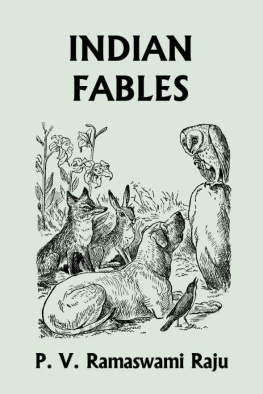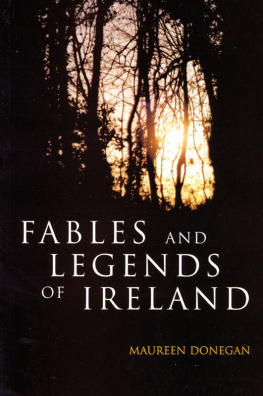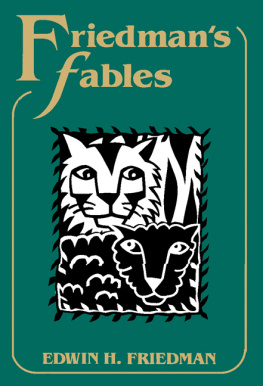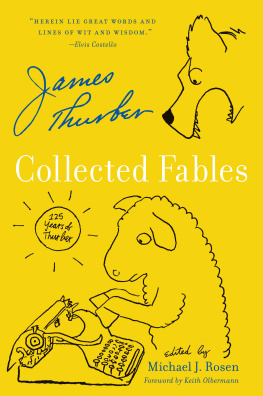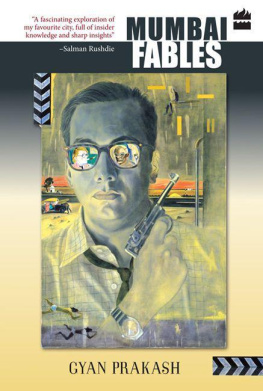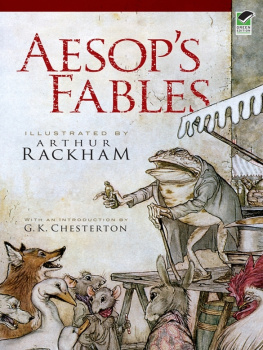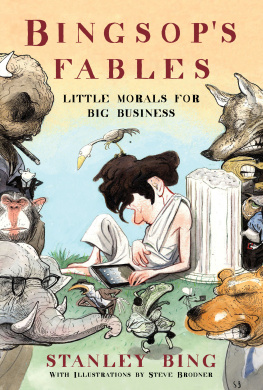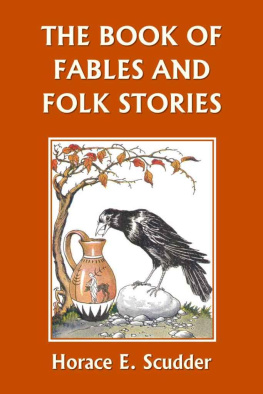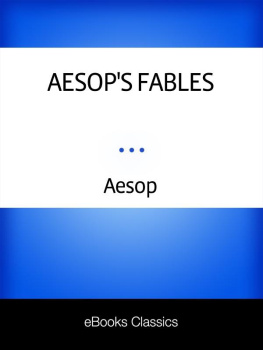Indian Fables
by
Ramaswami Raju
Yesterday's Classics
Chapel Hill, North Carolina
Cover and Arrangement 2010 Yesterday's Classics, LLC
All rights reserved. No part of this book may be reproduced or retransmitted in any form or by any means without the written permission of the publisher.
This edition, first published in 2010 by Yesterday's Classics, an imprint of Yesterday's Classics, LLC, is an unabridged republication of the work originally published by Swan Sonnenschein & Company in 1901. This title is available in a print edition (ISBN 978-1-59915-374-2).
Yesterday's Classics, LLC
PO Box 3418
Chapel Hill, NC 27515
Yesterday's Classics
Yesterday's Classics republishes classic books for children from the golden age of children's literature, the era from 1880 to 1920. Many of our titles are offered in high-quality paperback editions, with text cast in modern easy-to-read type for today's readers. The illustrations from the original volumes are included except in those few cases where the quality of the original images is too low to make their reproduction feasible. Unless specified otherwise, color illustrations in the original volumes are rendered in black and white in our print editions.
Preface
Whatever diversity of opinion there may be concerning matters oriental among the races inhabiting the West, there has been one point on which it may be said that but one view has been entertained by them allthat the East is the original abode of much of the Fable and Romance that have formed the heirloom of this world.
Hence, some have been inclined to think that when sop gave his immortal collection of Fables to the world, he might have derived the bulk of his material from an Eastern source. In more recent times, not a few have surmised that the highly admired collection of tales known as the Arabian Nights' Entertainments, though ostensibly derived from the people of Arabia, might have been obtained by that very people, like many of their arts and sciences, from a more remote centre of Eastern learning.
This great capacity of the Far East to furnish materials for Fables and Romances in endless variety is as much a characteristic of it now as in days of antiquity. To one that has the time and inclination to collect such materials, there is no better fi eld than India. The proverbs and pithy sayingsnot to speak of other crude germs, capable of development into fables with wholesome morals, which abound among the people of the countryare, in the metaphorical language of many of its writers, "as many as the pearls of the deep." But these pearls lie underneath the surface, and sometimes "full many a fathom deep."
Hence it is that many a person that has traversed the country from the Himalaya to Cape Comorin has failed to see them. Nay, many that have spent years in India have, like many seafaring men that have spent their lives on the ocean wave, failed to see them at all. Like the few that specially dive for them, some have from time to time endeavoured to collect the materials described above, and presented them in the shape of works which have interested the public.
Their labours, instead of exhausting the materials, have only proved their extent, even as all the divers for the wealth of the seas heretofore have, instead of exhausting it, only proved the extent to which mankind may profit by continuing their labours in that direction.
The efforts that I have made to collect the materials for these Fables, and present them in this form, have to be regarded, more or less, in this light. The work that is now submitted to the public is the outcome of continued research during a number of years. How far they may be interesting or instructive I leave it to the judgment of the general reader and the critic to decide.
The collection contains more than a hundred fables. Of these a few have long had a standing in the literature of India, though in a slightly diff erent garb. The rest may be said to have been derived from original sources. During the past two years these Fables, with illustrations, have been before the public in the columns of The Leisure Hour.
The volume has been dedicated to Sir William Andrew, whose great interest in such pursuits, and especially in matters concerning India, is well known to all. His brief yet valuable letter accepting the dedication, containing, in addition to his impression of the character of the work, an expression of that genuine regard and sympathy which he has invariably entertained towards the people of India, is reproduced here in the hope that the perusal of it may prove a source of gratifi cation to the British public and to my countrymen in India.
Letter from Sir William Andrew, C.T.E.
"29, Bryanston Square, W.
"My dear Sir,
"I accept with much pleasure the dedication of your interesting volume of Fables from the Far East. Such a dedication from a Hindu gentleman of your ability is peculiarly gratifying to me, from having paid so much attention to India and the interesting people who inhabit that vast empire.
"I return herewith the manuscript, the perusal of which has afforded me much gratification.
"Believe me, yours very truly,
"W. P. ANDREW.
"P. V. Ramaswanii Raju, Esq."
Contents
The Glow-worm and the Daw
A JACKDAW once ran up to a glow-worm and was about to seize him. "Wait a moment, good friend," said the worm; "and you shall hear something to your advantage."
"Ah! what is it?" said the daw.
"I am but one of the many glow-worms that live in this forest. If you wish to have them all, follow me," said the glow-worm.
"Certainly!" said the daw.
Then the glow-worm led him to a place in the wood where a fire had been kindled by some woodmen, and pointing to the sparks flying about, said, "There you find the glow-worms warming themselves round a fire. When you have done with them, I shall show you some more, at a distance from this place."
The daw darted at the sparks, and tried to swallow some of them; but his mouth being burnt by the attempt, he ran away exclaiming, "Ah, the glow-worm is a dangerous little creature!"
Said the glow-worm with pride, "Wickedness yields to wisdom!"
The King and His Vassal
A N Eastern king was very angry with a certain chieftain who had not seen him at court, though often desired to do so. One day he was walking through the streets of his capital in disguise with his chief minister, according to the custom of kings in the East, to see how the people fared. Soon after passing a butcher's shop, the king said to his minister, "Instantly the chieftain arrives in the city, send him up to me."
When the minister returned to his palace, he found the chieftain on his way to the court. "Pray, don't see his Majesty till I ask you to do so; and don't ask me for the reason now," said the minister to the chieftain, who therefore postponed his visit.
The king came to know of this, and asked the minister why he had done so.
"Sire," said the minister, "your order to send up the chieftain was given after passing a butcher's shop, and you meant to flay him like a sheep; so I asked him to see you some time after, when you should be in a better mood to see him."
The king confessed his intention, and said, "A wise minister is a tyrant's curb."
The Fox and the Villagers
A FOX that had long been the dread of the village poultry yard was one day found lying breathless in a field. The report went abroad that, after all, he had been caught and killed by some one. In a moment, everybody in the village came out to see the dead fox. The village cock, with all his hens and chicks, was also there, to enjoy the sight.

